
Princess Celestia has watched Twilight grow, develop, and endure. Twilight has exceeded her expectations each and every time, and now she's enjoying a productive life full of joy and wonder. As far as Celestia is concerned, their studies together ended quite some time ago. But there's still one thing she'd like for her learn, something she can't exactly teach.

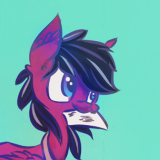


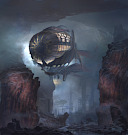




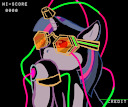





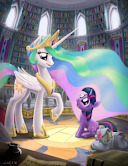


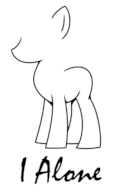


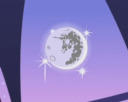
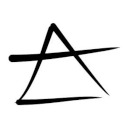
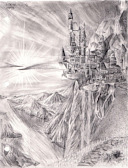
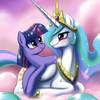
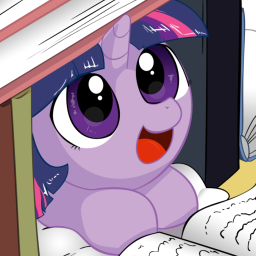

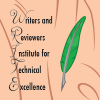


I don't get it. Is the moral of the story that ignorance is bliss?
3183460
In a manner of speaking, yes. But that's not the key message this story is conveying.
As stated early, Twilight has always wanted to explore this private library of Celestia's, and now she's granted the opportunity. But she has to read Reason first, which according to Celestia holds the answer to every question there could ever be. Twilight would have to end up reading that old book before she could access the library, but what would be the point then in exploration if she could just get everything answered for her instead with Reason? Where's the fun in discovery if there is none?
The story tells the mind of Twilight, evident by her thoughts found between what would be Celestia's unbroken dialogue. As shown when Twilight skipped out on her friends, and as we've seen in the show, she's still believing that work comes before friends. That's the mindset Celestia wishes to tell her is bad, but she knows she can't simply tell her that because the point wouldn't get across. Twilight would have to come to this realization herself in the form of a revelation, an epiphany. Celestia herself had fallen into that trap, evident by the untouched wealth of knowledge covered in dust, and that's just another reason why she doesn't want Twilight to. However, she was worried because she didn't know if Twilight would actually read Reason, thus fall into the same trap as her.
Twilight, thankfully, did come to have the epiphany Celestia hoped she would. So in a way, ignorance is bliss. But more so, it's about slowing down and paying attention to details; enjoying the things in life, not becoming narrow-minded and losing sight of what matters most.
Or as I could put in a single sentence instead of a rambling series of paragraphs: the journey is more important than the destination.
I may or may not also be poking fun at the readers who don't get the message.Confused, but the good kinda of confused that means you think you're right... But don't know for sure. Mmm, I like this. Stories without a "yes/no" are a favourite of mine.
3183698 That's pretty deep.
...
I'm going to go watch Respawn Inbox now.
...
Mr. Sark is best pony
Thoughtful fanfic, had to read it two times to get it
but a really nice and meaningful story nonetheless
Yes. The moment I saw the title, I knew that it had to be a reference to that song. Best song on the whole Process of Belief. You are amazing. A BR fan brohoof to you. /)
Have you ever stopped to eat the roses?
SPOILER FREE REVIEW
I am blown away at this. The characters stayed in character which I like. I like Twilight's relationship with the princess, both seeing her as an equal but also as a teacher of sorts. No problems here.
The story was both simple yet complex at the same time: simple in execution, yet with a complex message woven into it. The pieces fell into place to make a superb story here.
Without a doubt, one of the BEST stories on this site, and in probably all of fan fiction. That is no small task my friend.
Twilight should have replied, "Princess, I'm here now, and that means I am sharing time with a friend." I think perhaps the story's last line shows that they both learned a Friendship Lesson there on the balcony.
Another word for dusk, of course, is... Well, Celestia's other favorite.
Should be: to see a book suddenly appear between them
This sentence seems disjointed. Should probably end with "at the time" but even then it's missing a thought or three.
Should this say "as much time in my study afterwards as you like"?
Nicely done, even if I'm not certain I like the implications of what Celestia's trying to teach, above and beyond "stop and smell the roses." Also, shipping goggles = ON, if for nothing else than the wonderful last line.
I thought you were channelling some serious Bad Religion here, then behold the end note! The journey is more important than the destination sometimes, and since in real life the destination perfect knowledge and understanding is unreachable that is a good thing. We will always be able to strive for better because best in unreachable.
I guess I'm a weird one here. I didn't really feel like any great message was conveyed and I couldn't understand why the idea of doing both (reading all that knowledge and remembering to appreciate life and friends) wasn't even considered.
Our time may be finite, but it is only wasted if we spend too much of it doing just one thing. If we were to spend all our time marveling at nature, sharing in one another's company, and enjoying the act of being alive we'd end up a primitive race of lazy, rapidly running towards extinction, primates. Work, study, rest, and every other aspect of life is not only beneficial, but necessary to our survival as a species. Doing too much of any aspect causes neglect in those other very needful areas.
We might not get everything we'd like to done, but we certainly can keep ourselves always getting better in every little piece that makes up the whole.
3183698
I was kind of under the impression the book was what caused the shift in perception- the dust doesn't symbolize actual dust, but general inattention. Celestia doesn't read, doesn't care for, those bookes, though of course she keeps them carefully cared for, but that isn't what Twilight was asking for. She was asking, indirectly, how often they were used, and the book showed her.
After all, the book isn't just a book, it's an ancient magical artifact, and Luna calls it 'epiphany'. I can see something of that sort manipulating you into answering your own question, through nothing but perception.
3319106 This. I found this story was very anti knowledge....without really understanding what knowledge was. Both have their place. In fact, we would never have time to stop and smell the roses if not for science. We'd be too busy trying to find enough meat, tree roots and berries to survive the day whilst avoiding the occasional Cave Hyena. Twilight didn't seem the slightest bit concerned for this knowledge that Celestia was letting rot. Just because you could lose yourself in the book doesn't mean it couldn't help thousands, if not millions live better lives. Now, if the book made you unable to look away, then I could understand this treatment. And I agree it should be destroyed because of how potent a weapon knowledge is in the wrong hands. But this story just...fell flat on me. If this is the argument against dedicating your life to science, I'm glad I haven't second guessed my choice in all these years once.
as quigon jinn would say - keep your mind in the present moment, padawan. as a proponent of the living force, i really liked the ending. the pursuit of knowledge is a great thing, but when it comes between friends and steals time away from building relationships, it is not so good. twilight and celestia sitting together, enjoying each others company, taking that all-important *time* with each other. so awesome.
As someone who is currently trying to understand knowledge and his pursuit of it, this story has affected me greatly. I thank you for it.
I loved how you managed to stack metaphors deep enough you'd need a shovel to go through all of them, but still managed to tell an enjoyable story, with a great aura of mystery.. I specially liked the parallels between the search for knowledge and the implicit sacrifice it requires.
Ahh, stories like these are refreshing to read. You have created quite the masterpiece with this story. Props to ya, mate.
So the reason is.... there is no reason?
Greetings, RazgrizS57! Here begins the review you requested from WRITE.
First, a preamble, as preambles tend to go first. You've asked for someone who can peel back layers of symbolism and subtext. I'm not your man. Besides the seeming "fishing for compliments" nature of the request, I'm pretty dense at reading between the lines. After all, you're the one who put that stuff in there. Why do you need me to tell you?
Second, I'm always interested to see why someone wants a story reviewed after it's already been well received at FiMFiction, posted on Equestria Daily, and has no more apparent thresholds to reach. So when an author still strives to improve after all that, it's unusual.
To the synopsis!
These things can be very difficult to write well. I don't have any good suggestions for how to make it better, but my impression is that the first two sentences essentially say the same thing: "Twilight's come a long way."
Past perfect is for completed actions in past tense, but you're using present in this synopsis, so go with simple past here.
And on to the story!
I'll be the first to say that this may simply be personal preference, but I'm usually not a fan of personification except for comedic effect. By giving the door such deep thoughts, you cheapen the ones that the characters have in comparison. And your choice to contract "might have" creates an informal mood that doesn't fit with the seriousness you're trying to foster. And get rid of the "that." There's no function for a noun clause here.
And another issue with the personification is that you've moved from the door's perspective to Twilight's within the same paragraph.
Ah, the old "show versus tell." It'd be better for you to lead me to this conclusion through the details of how she acts. If this were an unimportant moment squirreled away in the middle of the story, I could let it slide, but right up front like this, you need to connect the reader with the character's emotions as quickly as possible.
While you can find style guides that say this is okay, it's mostly because they've bowed to popular usage. The more standard way is to put the full apostrophe-s on singular terms. Your call.
Most times, you'll want to set off a dependent clause with a comma.
So many people get this wrong. The past tense of "lead" is "led." And your choice of "was" is incredibly boring here. It's an inherently boring verb. Nothing happens. I'm noticing a lot of them by now—let me do a brief search. was/wasn't: 90, is/isn't: 15, were/weren't: 12, be/been/being: 43. So for the easiest forms to search for, you have 160 in just over 4k words, or on average a little more than one every other sentence. This story is drowning in them. You really need to make the story more active.
I'm assuming "their" refers to the doors, but the two closest objects in either direction are "balcony" and "window," so it creates a sort of numeric dissonance as well as being ambiguous.
How can a window rise vertically to the center of a domed roof? It'd have to follow the dome's curve to get to the center, unless the dome is half inside and half outside, in which case I need that bit of description. You also have to be careful with misplaced modifiers, particularly with participles. Because they're right together in the sentence, it sounds like the roof is contoured and allowing the light in.
You don't want a sentence to ramble on about so many things that it loses focus. By the end of his, I've forgotten what it's about. We start with the distance, zoom in on the mountain, say it marks a place, expound that the place is where the sun will appear, and then add that the sun's path will follow the window. You're doing too much. Long sentences are fine, if they don't try to cover too much territory at once. If these ideas are all worth saying, spread them out over a couple of sentences that have tighter focus.
Missing a comma, and this is another abrupt change of focus. You start by having me picture unbroken walls, then shift to the bookcases and how much they impress her. That last clause has some pretty clumsy phrasing, too.
Second unnecessary use of passive voice in the paragraph. Make these active constructs. This is another source of your "to be" verbs.
There are two problems with this. First, it constitutes a third-person narrator referring to the narration itself. You don't want the writing to be that self-aware. Second, this is inescapably rendered from Celestia's perspective, while the story had rested in Twilight's so far. You must undertake changes of perspective very carefully. Is this information vital to the story? If so, is there a way to convey it while remaining in Twilight's perspective? And if both of those are "yes," then certainly you can stay with that character for a length of time. Don't immediately snap back to Twilight. That just jerks the reader around, and you need to let him get settled into a character.
Another misplaced modifier here. And this "breath she hadn't known she'd been holding" is horribly cliched.
Another instance of a comma needed to separate a dependent from an independent clause.
Cut that "although." It's unnecessary and creates a double-negative feel with the "but."
The tense of that "sighed" sounds out of place.
This does a much better job of setting the scene than your earlier "the balcony which was exceptionally small: it looked like it was never designed with holding more than one pony in mind..." It implies rather than blurts. This subtle bit of description makes what came before it extraneous.
That's a rather clumsy and immersion-breaking phrasing...
Twilight holds the perspective here. It's implied that anything you describe is what she sees. Stating it loses that subtlety.
And this whole paragraph is incredibly dry. You moved into a very close perspective now, with the narrator speaking Twilight's thoughts for her. And she's just listing fact after fact after fact. Where's the emotional context? How does she feel about all of this? Does the prospect of standing in for Celestia make her knees shake? Does a vision of Celestia on vacation make her smile? You're giving me nothing. These are the kinds of things that make me identify with a character and care about her.
I have nothing but the narrator's word for it that these thoughts are outlandish. What you'd listed above certainly wasn't, so I have to assume you mean she's got wild fantasies floating around in her mind. Let me see them. You can't just make an oblique reference and then make me come up with them for you.
It's unusual for commas after conjunctions to be correct. This one isn't.
The "too" and "after all" are pretty redundant.
Oddly phrased. Why not just "Wait, what if the Princess wanted to retire?"
The narration was rather smooth. It certainly didn't create the sensation that Twilight was torn from anything.
Creating repetitive structures or phrasings can be used for effect, but doing so with descriptive elements is playing with fire, because I can't tell whether they're nested. To wit: "hard and brown" describes the binding, but does "cracked and fraying" describe the earth or the binding? It can be ambiguous.
An extraneous "to."
I'll use this to illustrate a point. You have two pairs of subjects and verbs (Princess... floated, she... stared). As such, you need a comma between the clauses. Now if you'd combined them (The Princess floated the book closer to her eyes and impassively stared at its cover.), you'd have a single subject with two verbs, so no comma is needed. Given that both subjects are actually the same, it creates a repetitive feel, so I'd encourage you to go with the latter.
Such phrases are rarely necessary, since it'd be evident from the way the speech is punctuated, except... you didn't actually have her trail off. Why not?
Missing a comma. And a word or two...
Ah, an honest-to-goodness dangling participle! Who is stunned? She doesn't appear in the clause. Only her head does.
Another perspective jump. How would Twilight know Celestia was "sparing" a glance?
all of a sudden
Repetitive phrasing in consecutive sentences.
I've read this five times, and I still can't figure out what it means.
Perspective again. How would Twilight know what Celestia would've liked?
I'm not pointing out all of these. In fact, I'm not pointing out many at all. But here's yet another spot where you bluntly inform me of her mood instead of describing how she looks and acts and getting me to deduce how she feels.
Use hyphens in most multi-word modifiers.
This is the third or fourth time (just going on my impression here without counting) you've told me what she doesn't notice. When a reader notices writing tics like this, it hurts immersion. And this is the second use of "noticed" in the paragraph.
Yet you said everything went black...
I don't get the comparison. A lexicon is a specific type of book, which this one isn't.
I like the way this turned out. You had something nice to say, and you did it in an understated fashion. This is the key point. You showed how Twilight was getting upset, running around the room, then went to Celestia for comfort. The message spoke for itself. You didn't have to beat me over the head and spell out exactly what you meant, and that's why it works. Now, do that with the story's emotional content as well. All those spots where I said you were telling instead of showing (there were a whole lot more than I marked) are the exact same thing. Don't beat me over the head with saying how someone feels. Give me the evidence and lead me to the conclusion, the same way you did with the story's message. Here's my tasty copypasta on the subject:
Also on the mechanical side of things, I saw the odd assortment of awkward phrasings, word repetition, misplaced modifiers... but the only really consistent problem was commas. I'd shown you a couple examples of each type of misused one I saw, so you should be able to root out the rest. Be careful of the perspective shifts, too. They weren't blatant, so it didn't feel like you did so consciously. You just have to keep a very firm sense of perspective as you write so that you don't fall into these little traps.
Lastly, I didn't see any issues with character or plot. Both characters act believably, and the the plot is simple enough that it'd be hard to get wrong... though I can't say I saw any thick layering of symbolism and allegory. It was pretty much all on the surface—the examples of things getting old and collecting dust right before her eyes, the sun setting. It works, mind you, but I didn't end up feeling like there was some deeper meaning I missed.
So, while I'd say there's some rough going in getting there, you have a strong ending that leaves a good last impression. Fix those things up, and you could have something really special. One has to make it through all that to get to the ending, after all.
Keep writing and have fun with it!
Pascoite, WRITE's mineral
fc06.deviantart.net/fs70/f/2012/349/4/b/reviewer_logo_longver03_01_by_burrakupansa-d5o60h2.png
3183698
So you have a story about slowing down and learning things the natural way through experience rather than being told outright (and to "stop and smell the roses"), and then you go and explain the moral of the story to someone.
3970623
Shush you.
3764012
Oh jeez. I must apologize for taking so long to get back to you on this. I could probably think up an excuse, but in the end there's really none.
Thank you very much for investing your time and effort going through this story. I'll be definitely sure to go through the whole thing thoroughly, paying special attention to what you said and all that you pointed out. Forgive me if my initial request came out a bit egotistical—that was not my intention. Nonetheless, I'm glad you seem to have enjoyed the story. Again, many thanks.
3982068
You're welcome. It was definitely a good read. The best part is that the reader has a bigger "aha!" moment than Twilight does. She immediately runs to Celestia, while I suddenly understand what Celestia was doing. In fact, Twilight's "aha!" moment is more of a gut reaction than full understanding, which will probably come a bit later. It's a much more authentic reaction than having her shout, "Oh, I just learned X!" which too many authors would do. The more I'm left to figure out on my own, the better, as long as enough evidence is there to do so.
Now this is the kind of simple cleverness I expect from one of the shows old episodes. Cant say much without spoiling things. I somehow thought the ending would be sad but it turned out just right. Had to read one of your comments to grasp all of the imagery. ...Gah! I tried to be clever but I promised myself no spoilers in any comments.
Great story. Might even show this one to my niece.
Being an impatient reader bit me in the ass.
I read the first paragraph then skipped to the end as the story hadn't grabbed me. I read the last few paragraphs and was confused. Was this a time paradox? Did dust conquer Celestia's library in the 600 years Twilight was held immobile by the book, only to find the princess still sitting on her balcony, now under an encroaching ivy canopy? Oh, wait. That doesn't make sense.
Then I had to go back and read it.
Aha. I think.
Understanding is not devalued by increases in volume thereof. That's a logical fallacy. The message, I hope, is that all knowledge is useless if we forget about each other in the pursuit of it.
Again, I think. The delivery leaves some room for interpretation.
Bwuh? What just buckin' happened?
Wait, wait... "The journey of discovery is more important than the discovery at the destination?" Well I guess it applies to life experiences, but it certainly doesn't apply to SCIENCE!
Wooosh!
Straight over my head.
I really enjoyed this one. Small, succinct and to the point.
Took a long breath after finishing, and went out for a walk to the nearby mountains.
Thank you :)
Aww s***, I just realized I skipped out on friends the other day for work. But what am I kidding, I already had my vacation.
I remember reading this story a long time ago. According to this (http://onemansponyramblings.blogspot.com/2015/12/one-final-christmas-gift-you-can-give.html), I would like to thank you. This fanfic taught me the right lesson at the right time. Every moment I'm awake, I feel alive. Or at least control and choose when I do. I taught me a lesson that I knew all along, but that I never listened to had neglected the time before I had read it. There were a few other things that made me stop and smell the roses at the time. I felt a sense of peace in my life.
Whenever I hear that phrase, I think of this story. And so, I would like to say: Thank You <3
6796380
This comment filled me with warm fuzzies. Thank you for that.
You can has review!